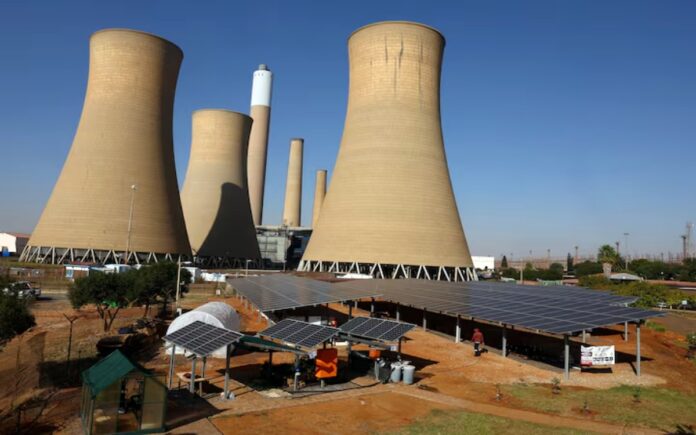Johannesburg: South Africa, ranked as the world’s 14th largest carbon emitter, is struggling to meet its ambitious climate goals due to slow progress in reducing coal dependency and expanding renewable energy, according to a report released on Thursday.
Despite being praised for its strong climate pledges and a detailed plan to reduce greenhouse gas emissions—higher even than those of wealthier nations such as France, Britain, and Italy—the country is falling short in implementation.
“Despite all the strong public support and policy commitments, we’ve got a huge discrepancy between that and what’s actually happening,” Melissa Fourie, co-author of the Presidential Climate Commission report, stated during the launch in Johannesburg.
The report, commissioned by the president’s office but produced independently, highlights the need for a more than six-fold increase in the pace of renewable energy deployment to meet the climate targets. It also pointed out that several countries are struggling to fulfill their climate commitments.
Also Read | Rising Mortgage Rates Push 320,000 Brits into Poverty, New Report Reveals
President Cyril Ramaphosa recently enacted a new climate change law setting emission caps for large polluters. Additionally, donors are providing $12 billion in loans to support South Africa’s energy transition, aiming to set a precedent for other developing nations.
However, South Africa has continued to rely on coal to address persistent power shortages, reversing previous commitments to close eight coal-fired power stations. Officials have now acknowledged that the country will not meet its 2030 climate targets.
Also Read | Romanian Athlete Florentina Iusco Banned for Doping Ahead of Paris Olympics
The report notes that South Africa’s renewable capacity was 10.4 gigawatts (GW) in 2022, growing by just 1 GW per year since 2015. To achieve net zero emissions by 2050, the country needs between 190 GW and 390 GW of renewable energy, requiring an annual increase of 6 GW to 14 GW.
It also criticizes “contradictory public policies,” especially regarding coal phaseout plans, which are delaying the transition. Investment levels are also falling short, with current commitments of 131 billion rand ($7.09 billion) per year compared to the required 334 billion to 535 billion rand.



